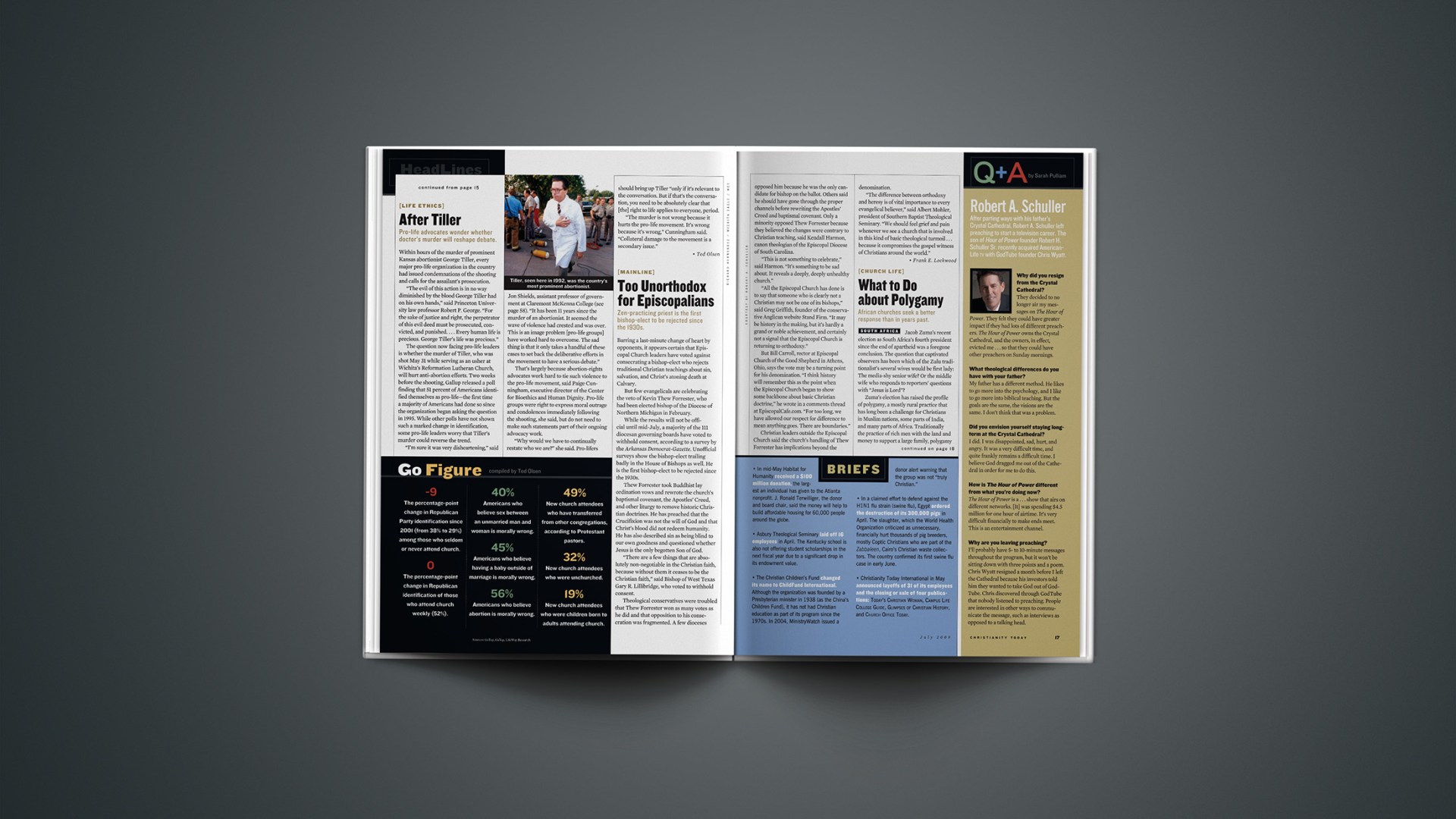Within hours of the murder of prominent Kansas abortionist George Tiller, every major pro-life organization in the country had issued condemnations of the shooting and calls for the assailant’s prosecution.
“The evil of this action is in no way diminished by the blood George Tiller had on his own hands,” said Princeton University law professor Robert P. George. “For the sake of justice and right, the perpetrator of this evil deed must be prosecuted, convicted, and punished. … Every human life is precious. George Tiller’s life was precious.”
The question now facing pro-life leaders is whether the murder of Tiller, who was shot May 31 while serving as an usher at Wichita’s Reformation Lutheran Church, will hurt anti-abortion efforts. Two weeks before the shooting, Gallup released a poll finding that 51 percent of Americans identified themselves as pro-life—the first time a majority of Americans had done so since the organization began asking the question in 1995. While other polls have not shown such a marked change in identification, some pro-life leaders worry that Tiller’s murder could reverse the trend.
“I’m sure it was very disheartening,” said Jon Shields, assistant professor of government at Claremont McKenna College. “It has been 11 years since the murder of an abortionist. It seemed the wave of violence had crested and was over. This is an image problem [pro-life groups] have worked hard to overcome. The sad thing is that it only takes a handful of these cases to set back the deliberative efforts in the movement to have a serious debate.”
That’s largely because abortion-rights advocates work hard to tie such violence to the pro-life movement, said Paige Cunningham, executive director of the Center for Bioethics and Human Dignity. Pro-life groups were right to express moral outrage and condolences immediately following the shooting, she said, but do not need to make such statements part of their ongoing advocacy work.
“Why would we have to continually restate who we are?” she said. Pro-lifers should bring up Tiller “only if it’s relevant to the conversation. But if that’s the conversation, you need to be absolutely clear that [the] right to life applies to everyone, period.
“The murder is not wrong because it hurts the pro-life movement. It’s wrong because it’s wrong,” Cunningham said. “Collateral damage to the movement is a secondary issue.”
Copyright © 2009 Christianity Today. Click for reprint information.
Related Elsewhere:
Christianity Today has more stories on abortion and life ethics, including:
Abortion Violence and American Democracy | The ironic relationship between the pro-life movement and its radical fringe. (June 3, 2009)
Reversing Roe v. Wade | It may take more than a single court decision to counter abortion on demand. (January 1, 2003)
The Abortion Wars | What most Christians don’t know about the history of prolife struggles. (January 1, 2003)
You Say Choice, I Say Murder | Before prolife arguments can reach the undecided American, we have got to look at the language we use. (June 24, 1991)










